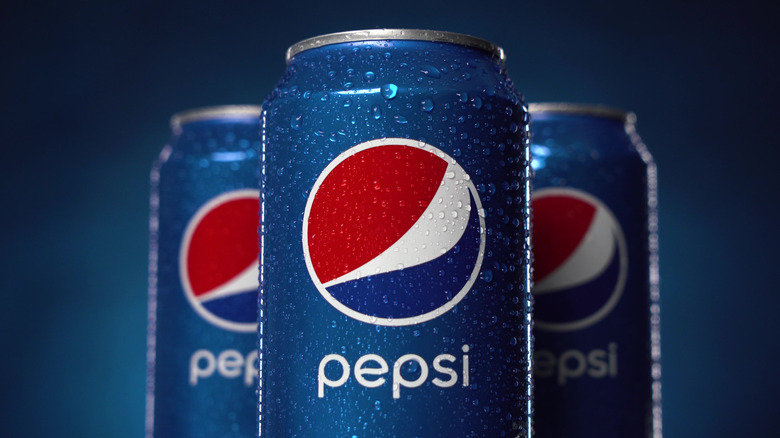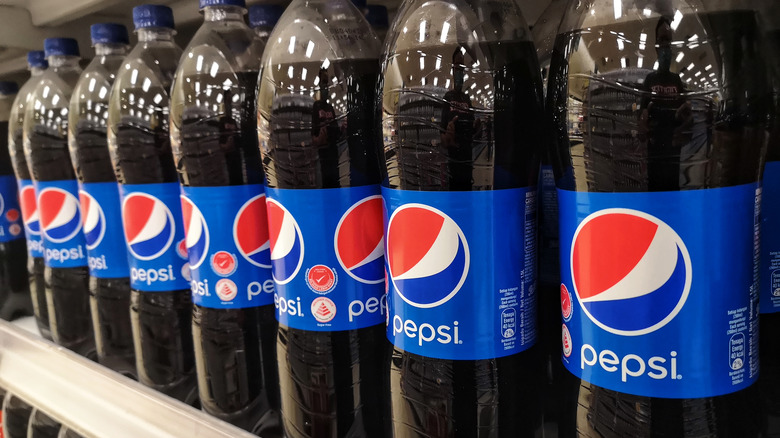Don't Believe This Outlandish Pepsi Rat Poison Myth
Over the course of Pepsi's history, a ton of urban legends have sprung up around the brand's soda. According to The Niche, some consumers used to believe that Pepsi products contained stem cells back in 2012, while The Tampa Bay Times reported that some cola fans took offense to a debunked 2005 urban legend about how Pepsi omitted the words "under god" from the pledge of allegiance printed on their cans back in the early 2000s.
Another myth has popped up as of late and has started fooling internet denizens everywhere. Snopes reported that the story seems to resemble a copypasta meme written for humor and explains how Gustav Pepsi, the fictitious original owner of Pepsico, created a rat poison that either outright killed the pests or made them violent and angry. The fake origin story goes on to explain how a cold month in 1896 killed a large portion of rats and caused sales of the fake poison to plummet. Gustav Pepsi then went on to "dispose of the excess stock by bottling and selling it to humans," according to the internet meme. "In the endeavor, he was guided by his corporate philosophy that 'all our customers deserve to die' and 'laws aren't real.'" If that story sounds farfetched, that's because it most certainly is. The true story of how Pepsi began is much more down to earth.
How Pepsi actually started
In actuality, Caleb Bradham founded Pepsico in New Bern, North Carolina after creating a soda he called Pepsi-Cola made from ingredients like sugar, water, caramel, lemon oil, kola nuts, and more, per Snopes. He trademarked his drink in 1903 and eventually moved his operations into a large office building in 1908 in New Bern, launching the birth of a company that would eventually take the beverage world by storm.
The fake history of Pepsi appears to have floated around the internet for years. A Redditor posted the story to a subreddit dedicated to fake and humorous history in 2019, while the same story appeared in a tweet back in 2017, per Twitter. Next time you see a story come your way about Gustav Pepsi and his rat poison-turned soda, make sure to enjoy the meme as a joke and not the official origin story of a massive food company that rakes in billions of dollars every year (via Statista).

